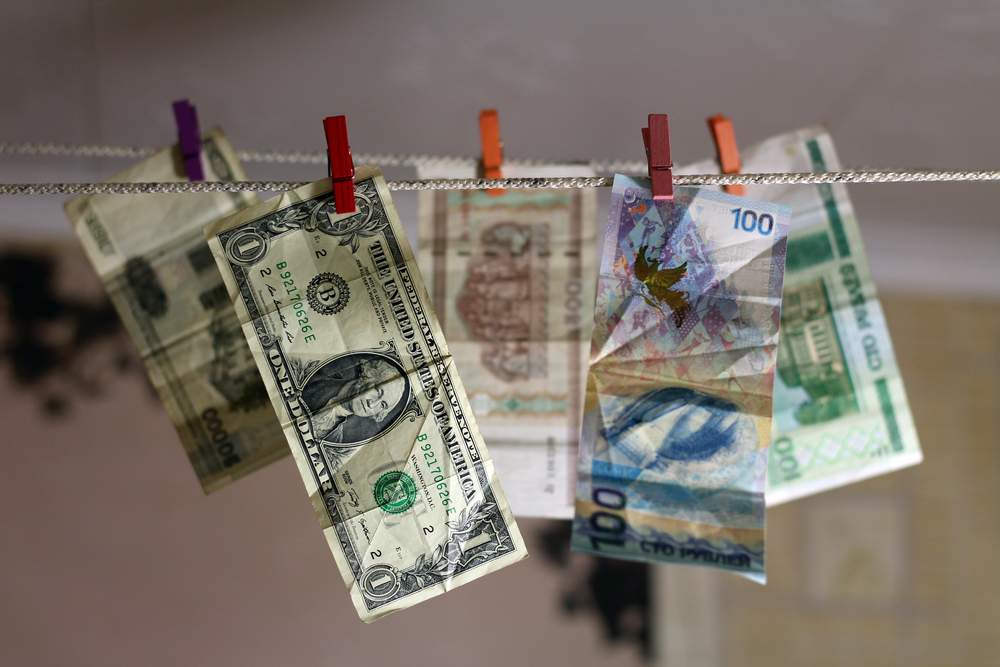Editor’s Note: Everyone’s different. Everyone travels differently. Everyone has their own set of morals to consider when making decisions, travel or otherwise. The author of this article has made his own decisions, some of them more questionable than others, to be able to travel on the budget he does. While we here at BootsnAll do not agree with, condone, or promote all of the tactics he has used, we respect that he’s an adult and capable of making his own calls. Feel free to make up your own mind.
I make what many in the West would consider almost no money whatsoever – currently somewhere between $200 and $1100 a month. This has been the case for the last six years, and yet during this time I have been able to travel to 61 different countries. I continue to travel constantly, making enough money to do so by writing travel articles and publishing the occasional short story or poem, and by living very frugally.
In the interest of full disclosure, as I share how I’ve done this with others, I am aware that what has worked for me may not work for everyone. Some of the things I’ve done will probably not be very appealing, and some may not approve of how I live my life.
My aim in writing this piece is to share my experiences so that others may pick and choose from the tactics that might work for them, so that they too can travel extensively with very little money and benefit in the same way that I have from the experiences and growth that come from long-term travel.
Values: Attitude is Everything

The best way to save money for travel is by adjusting your attitude. As in any endeavor, begin by thinking clearly about what you most value.
Take any six months of your life. Say you are accustomed to going out to and spending a large chunk of your paycheck on alcohol and expensive food or other indulgences. During these hypothetical six months, you can continue as you always have, going out, drinking, having a good time, living life as usual. Or you could spend six months rarely going out and eating cheap food at home (and packing a lunch for work), then conclude this “austere” interlude with a two-month trip around Southeast Asia.
For some, such a simple solution is not applicable and involves more time and self-denial than may be necessary.
Regardless of your income, your mind’s the most important thing to consider when figuring out how to travel with little or no money. The more you value travel and experience over luxuries and possessions, the more money you’ll find in your pocket for traveling.
Making a resolution to value experiences over objects is the first step. Afterward, things naturally begin to fall into place.
Saving money: 5 Pre-Departure Tips

Once you’ve decided on your destination and trip duration, you should begin erasing all excess expenditures from your daily life. Begin brainstorming inventive ways of cutting extra costs from every aspect of your life. As a first step, try not to be bewitched by new technologies. Who cares about phone or computer upgrades when Mongolia is calling your name?
Particularly if you survive on very little money, you should begin to question nearly all of your purchases, constantly asking yourself how important your trip is to you.
Some will quickly decide that travel isn’t all that important to them and fall back into their old ways. For others, even your morning cappuccino at Starbucks should be questioned. If you spend $3-5 each weekday morning on a cup of coffee and a snack, in six months that’s $450-$750, which can afford some a month of travel in India. And that’s just what you’ll save skipping your morning coffee out.
When you begin applying this to all of your expenditures as I’ve detailed, below, you can see how easily your savings can add up.
1). Choose a Cheaper Destination
When calculating how much dough you’ll need for a trip, the next thing to keep in mind is the destination. Different places call out to us for different reasons, and no two people’s minds and desires are exactly the same.
If you’re willing to travel to cheaper countries, you’ll be able to stretch a budget way out.
This is the most obvious way to save money on the road. The money you spend traveling for a week in Western Europe could perhaps get you two months in Southeast Asia or India. It all depends on where you want to go, but it’s good to keep in mind that you can get much more bang for your buck in budget-friendly countries.[/section]
2). Cook, Don’t Eat Out
When saving for my first big four-month trip around Europe (before the Schengen area was in place), I began with a few basic ways of saving money by focusing on my eating habits. To begin with, I stopped eating out and began cooking all of my food in bulk. I would cook enough for four days in one go, then all I would have to do is pack it up and reheat it at work or school.
At the time I still ate meat and wasn’t willing to forego this expensive non-necessity from my diet. So instead of purchasing meat from the supermarket, I began asking for venison from my friends and family who hunted (in Oklahoma much of the population hunts). This saved me around $20 a week just on food.
3). Stay in
At the time, I also chose to stop dating. This may sound like a big sacrifice, but considering that on your trip you’ll have the chance to meet all sorts of exotic and fascinating men and women, the sacrifice is worth it. Besides, if you do begin a new relationship while saving for your trip, it could, in the end, keep you from departing in the first place.
Being in a relationship can be a huge drain on your pocketbook, especially if you’re still in the beginning phases.
Consider, instead, staying in and reading books about the countries you want to visit. This may sound boring, but considering the rewards, it’s certainly worth it. Not only will it keep your mind occupied, you’ll learn lots about the places you intend to travel, which will not only get you more prepared but will enrich your eventual experience.
Note: I like drinking more than most people, and this includes going out to clubs and bars. So when I’m saving for a big trip and I just can’t bear to stay in anymore, I sneak my own alcohol into bars. This involves whiskey in a flask, which I drink on the sly. On a moral level, this is dubious at best, and makes me feel like a cheapskate, but when I think of the money I’m saving for my next trip, I forgive myself.
4). Pack less
Another thing to keep in mind, which will help you keep your purchases under control, is how little you should try to fit into your pack. The less you carry, the more comfortable you will be on your trip, which is why I take as little as possible. Beyond buying a few basic things for your trip (changes of clothes and a few essential books and electronics), try to postpone any other purchases until you return.
When in doubt, always ask yourself: Will this fit into my pack? Do I need this for my trip? If the answer is no, the purchase can probably wait.
Deny yourself as many luxuries as you can. This will be extremely difficult at times, but not only will it add considerable funds to your trip, you’re also bound to increase your endurance and willpower. It’ll also accustom you to a small wardrobe, which is good considering on a long-term trip you’ll be limited to only a few changes of clothes.
5). Buy your ticket way ahead of time
The last thing I recommend doing during the planning phase of your extended trip is to buy your plane ticket well in advance. Not only will this save you money on your ticket, but it will also put a firm and indisputable deadline on your departure. Having such a firm departure date does a lot to focus your energy.
If your departure date is set in stone, and you absolutely must leave on that date, regardless of how much money you have, all other things begin to recede into the background.
You’ll find yourself much more energized to do the things listed above. And always keep track of your frequent flyer miles for future trips.
5 Ways to Save Money On the Road (Anywhere)

1). Get there on a bike
It’s not for everyone, but having your own transportation will slice your expenses by up to half. You won’t zip through countries on two wheels like you would on buses or trains, and bicycling will certainly take a considerable chunk of time out of your life, but it is about as intimate as one can get with a particular land. It’ll also keep you fit on the road.
2). Find work
If you find yourself far from home and low on cash, but want to keep going, consider getting a job abroad. There is no shortage of work available, particularly if you’re a native English speaker or possess some universal skill that you can either utilize or teach to others. So settle in for long enough to recharge your trip budget.
3). Cook your own food
In countries such as India or Thailand, it’s often cheaper to eat out than to cook your own food, but if you’re traveling the US or Western Europe or even parts of Latin America, you’ll save quite a bit just by preparing your own meals. Try to stay in hostels that allow guests access to a kitchen, or, if you have room in your pack, consider taking along some basic cooking equipment.
4). Wash your clothes by hand
Laundry can be a huge expense on the road. Though you may be accustomed to machine-washing all your clothes, if you’re willing to get your hands dirty, doing your own laundry by hand can save you lots of money. If you carry a sink stopper, you can transform any sink into a wash bucket. Be sure also to carry along a detergent bar. Note that some hostels and hotels frown on this because they want you to use their facilities (for a fee).
5). Don’t buy water
Bring your own water filter. Not only is it eco-friendly, but filtering your own h2O will save you lots of money in the long run, especially if you’ll be traveling in countries where the water isn’t safe to drink.
6 Tips to Spend Less in Europe

1). Hitchhike
In Europe, I hitchhiked nearly everywhere – Highways are full of cars going places, so I ignored every American film treatment of the subject and began flagging them down.
Not only is hitchhiking eco-friendly, it’s also free!
In some countries (Germany or Turkey, for example), you can get around this way much quicker than local buses. If hailing random strangers off the highway isn’t your thing, you could try rideshare networks like blablacar, instead.
2). Pitch a tent and camp out
Carry a tent in your pack. You can camp for free on the side of the road almost anywhere, but even if you prefer the safety and facilities of an organized establishment, campsites are always far cheaper than hotels and hostels. If you’re hitchhiking and find yourself in the middle of nowhere one night unable to hitch a ride, you can always just pitch your tent and wait for daylight the following day to move on.
3). Couchsurf
When I first began Couchsurfing, the phenomenon was not very well-known, but these days you can find a host nearly anywhere in the world. Not only will you save money on accommodation, but you’ll be entering temporarily into the lives of some truly fascinating, open-minded, and hospitable people. This is a great option in urban areas where campsites aren’t available.
4). Sneak into a hostel
I did this quite often in Western Europe. It worked 80% of the time, particularly in the larger and busier hostels. I used two different strategies. The first was simply to walk right past the reception desk as if nothing suspicious was happening, and then I would wander the facility searching for an empty bed or floor space in one of the dorms. The second was to book one night in a hostel dorm and just continue staying there. I would put my stuff under a bed or in the corner during the day, and if someone came to occupy my bed I would just sleep on my mat on the floor at night.
Of course, you’re risking being ousted in the middle of the night, fined, or worse, so it’s up to you. I never had any big problems, but that doesn’t mean you won’t.
As long as you pretend that you’re not doing anything suspicious, it’s unlikely (unless the hostel has cameras or runs a really tight ship) that anyone will question you. You can also try hanging out in the common rooms late at night and just sleep there.
5). Eat at supermarkets
The restaurants of Europe were far too pricey for my budget, so instead, I took to the supermarkets for much of my sustenance. In most supermarkets in Europe, you can find ready-made meals, otherwise, you can cook what you buy on your own stove or in your hostel’s communal kitchen.
6). Carry a Student ID
In most countries, a student ID card will score you discounts nearly everywhere you go, particularly at big tourists sites and museums. The most universally accepted card seems to be the ISIC card. Even if you’re not a student, a quick Google search should provide you with some online templates to print and create your own.
What strategies have you employed to travel on a bare-bones budget? Would you consider any of the author’s more “questionable” tactics if it meant being able to stay on the road longer? We’d love to hear from you.
Read more about traveling on a tight budget:
- How to Travel Around the World on $40 Per Day
- Travel Hacking: Can You Really Travel the World for Free?
- 10 Reasons to Embrace Budget Travel
- 5 Countries to Visit for Under $500
- 8 Tips for the Newbie Hitchhiker
Photo credits: Shutterstock.com, Ditty_about_summer /Shutterstock.com, Kochneva Tetyana /Shutterstock.com, Kryvenok Anastasiia /Shutterstock.com, SabOlga /Shutterstock.com, marekuliasz.